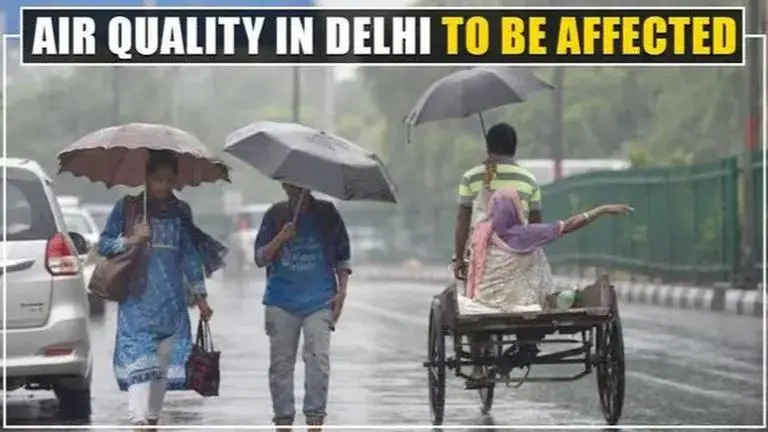Updated 9 October 2019 at 22:33 IST
Late withdrawal of monsoon likely to affect air quality in Delhi
the air quality in new Delhi is likely to deteriorate if the monsoon withdrawal from northwest India stretches to the end of this month, an official said.
- India News
- 2 min read

A day after Dussehra celebrations, the air quality in the city was reported to be moderate on Wednesday but it is likely to deteriorate if monsoon withdrawal from northwest India stretches to the end of this month, an official said.
According to SAFAR, a unit under the Ministry of Earth Sciences, the Particulate Matter (PM) 2.5 in Delhi was in the satisfactory range while PM 10 in moderate category, indicating that larger particulate matter is the main pollutant ay present. There is still a lot of monsoon moisture in and around Delhi due to high wind speed and this helped disperse pollutants, System of Air Quality and Weather Forecasting And Research (SAFAR) programme director Gurfan Beig said.
Late monsoon withdrawl not a good thing
However, it may change due to the late withdrawal of monsoon from northwest India. Beig said the retreat of monsoon coincides with anti-cyclonic circulation. "The late monsoon withdrawal is not good news for air quality in North India. During the third to fourth week of October, the temperature will also start to cool," he said.
Advertisement
"The anticyclone, which forms immediately after the withdrawal and associated with clear skies and sinking motion, will make the atmosphere very stable beneath means significantly calm surface winds," Beig said. This will lead to stagnant weather conditions like low wind speed, descending air and compressed boundary layer, which favour rapid fine particulate matter formation and accumulation of pollutants, he added.
Advertisement
"The situation becomes worse if it is encountered with any additional internal (like firecrackers) or external (like stubble) emission source. In a landlocked city like Delhi, it may lead to rapid accumulation and may trigger extended extreme pollution events," he added. However, if local emissions are controlled it will be a good check to observe and avoid air quality crises, he added. The monsoon retreat begun from northwest India on Wednesday, more than a month after its normal withdrawal date.
Published By : Press Trust Of India
Published On: 9 October 2019 at 21:46 IST
